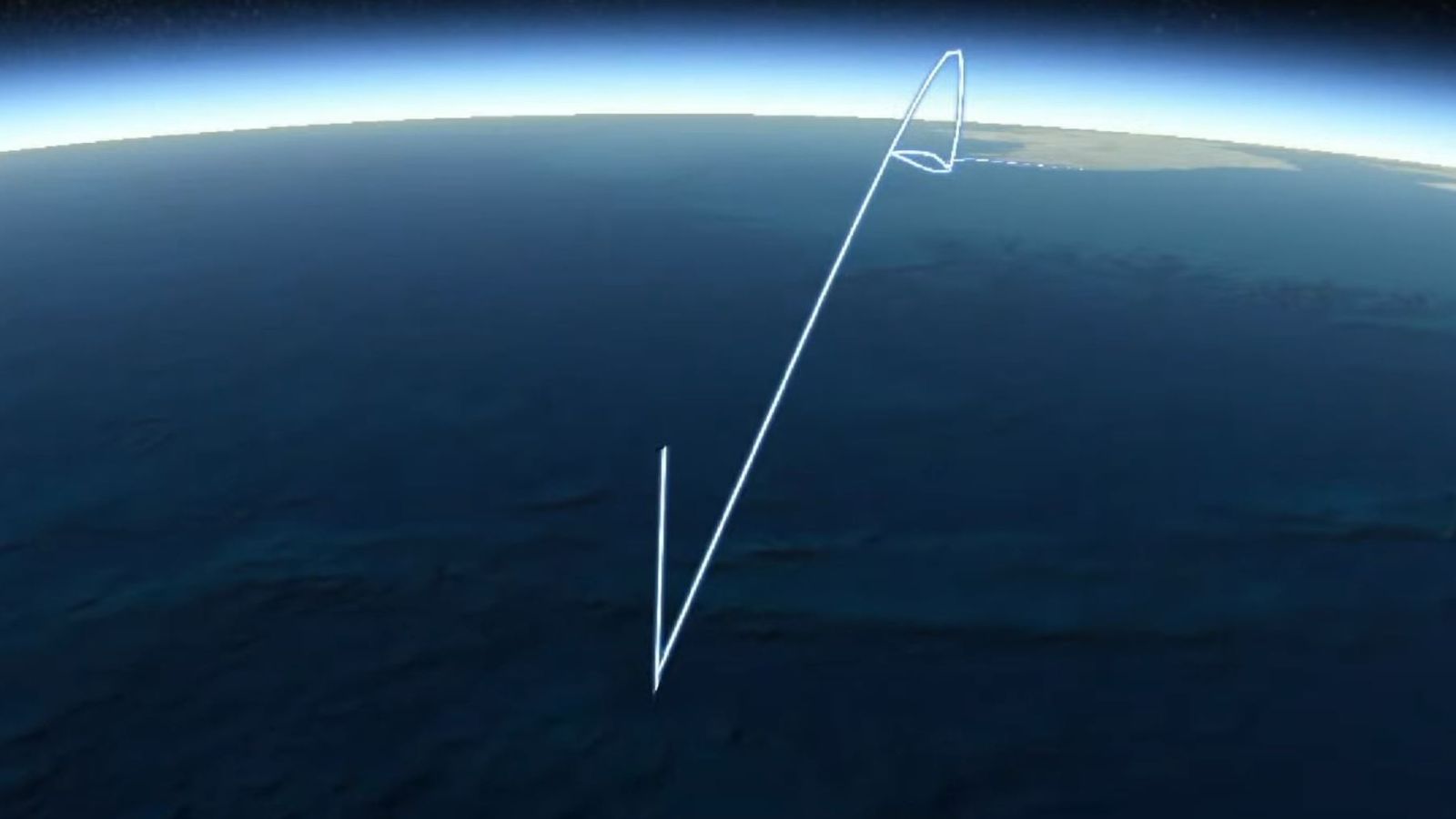Cosmic Girl jumbo jet lands back in Cornwall as UK’s historic space mission suffers setback

LauncherOne has suffered an “anomaly” and has failed to reach orbit – after being blasted into space in an historic launch from UK soil.
Carrying nine satellites for deployment in Earth’s lower orbit, LauncherOne shot off towards the stars from about 35,000ft above the Atlantic, having been carried skyward by a converted jumbo jet dubbed Cosmic Girl.
But shortly afterwards, Virgin Orbit, the operator of the launch, said: “We appear to have an anomaly that has prevented us from reaching orbit. We are evaluating the information.”
UK’s historic space launch – live updates
The former Virgin Atlantic Boeing 747 took off from Spaceport Cornwall, at the site of Newquay Airport, at just gone 10pm on Monday night, sparking wild cheers and applause from the 2,000 members of the public who were lucky enough to snag tickets.
Sky News’s science correspondent Thomas Moore said that although the rocket did seem to reach space successfully, “it does seem that at the last moment, the actual deployment of the satellites hasn’t worked”.
Cosmic Girl has since successfully landed back at Spaceport Cornwall.
It set off from Newquay shortly after 10pm, and reached the drop point for LauncherOne – the 21m-long rocket that was nestled under its left wing – just before 11.15pm.
The plane touched down back on the southwest coast of England less than two hours after its departure.
Advertisement
LauncherOne was due to reach the other side of the world, ready to release the satellites another hour or so later.
Despite news of LauncherOne running into problems, Cosmic Girl was greeted by raucous applause from the hundreds of members of the public watching at the spaceport.
Read more:
UK space launch – live updates: Jumbo jet carrying first orbital UK rocket takes off from Cornwall
Start Me Up: Everything you need to know about the UK’s first rocket launch
Start Me Up: How to spot the first rocket launch from UK soil
What kind of satellites were being deployed?
Unlike the large satellites taken into space by vertical rocket launches, like those carried out by NASA and SpaceX, Virgin Orbit – the operator of Monday’s Start Me Up mission – was dealing with far smaller hardware.
Only about the size of a cereal box, the newly launched satellites were set to perform a range of tasks in space, such as maritime research and detecting illegal fishing and piracy, as well as national security.
They are also used for climate change observation.
Slowly but surely, Earth’s lower orbit is becoming much more crowded, as companies from Amazon to UK-based satellite company Iridium all holding a presence.
So too does Elon Musk’s satellite broadband company Starlink.